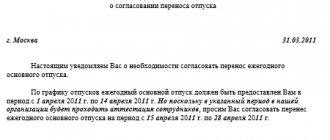Will: concept and form
A will is a document certified by a notary through which a person establishes the order of distribution of his property after death.
A citizen can bequeath property in whole or in part to any person or legal entity.
The order regarding the property is drawn up in writing with mandatory certification at a notary office.
Failure to comply with these conditions may result in the document being declared invalid. This issue is discussed in more detail in the article “The concept and form of a will”
Replacement with a gift deed
Such transactions have different legal natures. It is undesirable to replace a will with a gift document (Chapter 32 of the Civil Code). Heirs can dramatically change their attitude towards the owner of the property and carry out illegal transactions with real estate or other assets. The difference between a deed of gift and a will is that in the first case there are two participants in the transaction, and property can only be transferred during the life of the testator. Consent to accept the item is required. The will contains only the posthumous will of the owner.
Questions about revoking a will
Life is unpredictable, and therefore a citizen can revoke his will at any time. When canceling, it must be taken into account that a will canceled in whole or in part by a subsequent will loses its force.
However, if a later declaration of will is found to be invalid, then the previous recorded wishes become legally significant, and the property of the deceased will be distributed in accordance with them.
Reasons for cancellation
The rules that govern the amendment, cancellation and execution of a will in Russian law do not take into account the reasons for cancellation, about which a person is not obliged to notify anyone. The testator has the right to cancel a previously made decision without any explanation.
Practice shows that most often a citizen revokes his expression of will if there is a conflict with the heir or the bequeathed property is destroyed.
How can you revoke a will?
The will of a citizen certified by a notary cannot be canceled by simply crossing out or destroying it. According to the law, methods for revoking a will include:
- drawing up a new document indicating the cancellation of the previous one;
- drawing up a special order;
- drawing up a new document, but without reference to the previous one.
Direct method
In case of direct cancellation of the expression of will, the citizen draws up a special order. It is also possible to cancel a will by drawing up a new one. But in both cases it is indicated that the previous document is cancelled.
A writ of revocation is not a will, but a written document that revokes the will.
A new document is often drawn up in the event of fundamental changes in the composition of the estate or the list of heirs.
Indirect method
In case of indirect cancellation, a new testamentary act is always written, the text of which does not mention the cancellation of the previous one. A previously written will becomes revoked in accordance with the rules of civil law, which provide for the validity of only one act.
A citizen in a new will may decide to change the legal successor, as well as to change the volume of bequeathed property, so it is possible that both decisions of the owner will contradict each other. But the will expressed later is preferable and reflects the desires of the person at the time of drafting.
Thus, the question of how to cancel a will for inheritance has several equivalent solutions. The testator decides which one to choose.
How to cancel a will at a notary
A testator who wishes to cancel his will can contact not only the notary who certified the will, but any notary office.
The procedure established by law for drawing up, amending and revoking a will provides that only the will-maker himself can perform these actions.
The notary, having received an order to cancel or a new testamentary act, must make a note:
- in the register of registration of notarial acts;
- on a copy of the will kept by the notary;
- in the register of certified wills.
These measures make it possible to ensure the priority of the subsequent decision over the previous one and strictly fulfill the will of the testator.
Thus, in the question of how to revoke a will by the testator himself, no difficulties or obstacles arise. The main thing is the presence of the desire of the will-maker himself.
Cancellation by order
The will is revoked through an order drawn up in a similar form. This means that it also needs to be in writing and certified by a notary.
It is important to remember that an order to revoke a will can be made by a person with legal capacity at the time of its preparation. In other words, if the testator who wants to revoke his will has mental disorders, then the order drawn up in such a state will be considered invalid.
It is necessary to draw up an order to cancel the expression of will independently, without issuing a power of attorney to a third party. If potential heirs are wondering how to cancel a will for an apartment during the owner’s lifetime, then the answer is clear - not at all, unless the owner himself makes such a decision.
If the will was closed, then the notary leaves an inscription on the envelope about the canceling decision. The sealed envelope remains in his custody. After a person dies, it is not opened.
The order comes into force from the date of preparation. This point is taken into account if there was a visit to another notary office.
How to make an order
The law does not impose strict requirements on the content and form of this document. Nevertheless, a minimum list of required attributes is present.
So, the order must contain:
- information about the notary certifying this document;
- personal data of the testator;
- information about the will to be revoked;
- testator's signature;
- date and place of drawing up the document.
The order of inheritance by law
If instead of a canceled will a person has not made another one, then all his property is inherited according to the norms of civil law, that is, in order of priority.
First of all, the surviving spouse of the testator, his children and parents have the right to property. In their absence, the siblings of the deceased, as well as his grandparents, can assert their rights.
In any case, relatives can claim their rights to the property of the deceased only in the absence of previous heirs.
This topic is discussed in more detail in the article “Inheritance by Law”.
How to make a new will
After the previous will is canceled by order, a new one is drawn up according to the same rules as the previous one, that is, the will to dispose of property is expressed taking into account the changed circumstances.
A lawyer can also provide assistance in drawing up a new document, for example, for a fee, he can write it according to the testator. Then the recorded written expression of will is certified by a notary.
A will can also be closed. In this case, it is kept in a sealed envelope, and even the notary does not know its contents.
You can read more about the drafting procedure in the article “How to draw up a will.”
List of required documents
To cancel a valid will, you must provide the notary office with:
- a copy of a valid will;
- passport.
If the cancellation is made by drawing up a new document, then it must be provided to the notary as well.
An order to revoke a will is usually drawn up directly in the notary's office itself.

Grounds for declaring a new will or disposition invalid
The invalidity of the will and the legal consequences of such for the previous testamentary act should also be considered. A new expression of will or order can be declared invalid only after the death of the testator and in the presence of certain grounds:
- violation of the form of the drawn up document;
- incapacity of the testator;
- absence of witnesses, if there should be any, or inappropriate witnesses, for example, an heir;
- certification of the will by an unauthorized person, for example, a doctor, and not the head physician.
The presence of one or more of the listed points entails the recognition of the document as invalid. Therefore, only a notary or a court can decide whether a will can be revoked after death.
How to make a will for a house
It should be borne in mind that it is not possible to bequeath a house without the land on which it stands. According to the law, they are not separated (Civil Code art. 552; Land Code art. 35 clause 4; Land Code art. 1 clause 1 clause 5). For this reason, the provision of title and title documents for land is mandatory - in addition to the same documents for the house.
A worthy replacement for the BTI certificate in this case will be the SPOZU, without which it is impossible to obtain a construction permit and put the house into operation (GrK art. 51 and 55). That is, every owner of a private house has a SPOZU.
Change procedure
There are also two ways to change a will. In the first option, a person indicates in writing which points should be changed and how. The notary certifies this application and attaches it to the stored will.
If the changes are certified by another notary, then it is necessary to send the document to the office where the amended will is kept by registered mail.
Drawing up a new will to replace the old one
The second option involves drawing up a new will, which indicates which clauses of the previous will remain the same and which are changed.
The new document also may not indicate specific changes that need to be made in the previous one. In this case, the first will will be valid in points that were not affected by the changes prescribed in the later one.
Exceptions regarding revocation or modification of a will
Although a will can be changed at any time without specifying a reason, there are a number of exceptions, failure to comply with which will result in the invalidity of the change or the cancellation of the testamentary instrument.
We are talking about actions taken during an emergency or in relation to funds held in bank accounts.
Being in a situation that clearly threatens life, the testator can, in the presence of two witnesses, draw up a declaration of will in simple written form.
If, within a month after the end of the emergency situation, the testator does not contact the notary’s office to draw up a will, then the drawn up order becomes invalid.
As for bank deposits, you need to change or cancel your will, as well as cancel subsequent orders, in the same bank where the funds are kept.

Thus, Russian legislation does not provide for cases when a will can be drawn up without the right to change or without retroactive effect.
Documents required for changes
The documents that must be submitted to the notary's office when amending a will do not differ from those necessary to cancel it:
- a copy of the current order;
- passport.
Challenge procedure
If relatives of the deceased have suspicions about the disposition of property described in the will, they can challenge it.
The question of the validity of the testamentary act is decided by the court. You can demand either recognition of the testator’s decision as invalid (in whole or in part), or transfer of the right of inheritance to certain property to another person/persons.
Changing or canceling a will does not entail invalidation of the will. Therefore, to challenge the heirs, they must have compelling reasons, as well as sufficient evidence: medical documents, witness statements, and so on.
The procedure for challenging, its grounds and sample documents can be studied in the article “How to challenge a will for inheritance.”
What is important to remember
When wondering how to invalidate a will, you must remember that:
- This can only be done by a person whose inheritance rights were infringed by this will . These are close relatives of the deceased, people who were indicated in a previously written and canceled document, the state laying claim to certain property.
- The time frame for challenging a will varies from one to three years . This depends on the specific basis: if the plaintiff wants to prove that at the time of drawing up the will, the testator could not understand the meaning of his actions or direct them, then the statute of limitations is one year; if any other of the above grounds is subject to proof, then the period is three years.
- If another will was previously drawn up and certified, then it is this will that will come into force after the latter is declared invalid . Proving the previous document is invalid will require a separate trial.
However, in any case, it is possible to appeal the court’s decision to declare the will invalid/valid . An appeal is filed in accordance with the general procedure established by law.
Video: How to invalidate a will
Grounds for invalidating a will
Depending on the grounds for the invalidity of the will, it is recognized as void or voidable. Unlike a contestable will, a void will is declared invalid without going to court if the notary ascertains violations:
- the person expressed his will verbally;
- the document is not certified by a notary;
- there is no signature of the testator on the will.
If the heirs have reason to believe that the testator at the time of drawing up the document was not aware of himself and could not direct his actions or expressed his will under the influence of delusion, threats or deception, then the testamentary act is considered voidable.
How much does it cost to cancel or change?
The cost of the cancellation or amendment procedure consists of the amount of the state fee and the cost of technical and legal services of a notary (if there is a need for them).
The state fee for notarization of a will is 100 rubles.
Technical and legal services are paid separately; their cost must be clarified when contacting a notary office.
To correctly draw up a will document, you can contact a lawyer in the field of inheritance law. Of course, the services of a notary and other specialist are paid for. But the citizen will be explained the concept and content of a will, as well as the subtleties of canceling, changing and executing a will.










